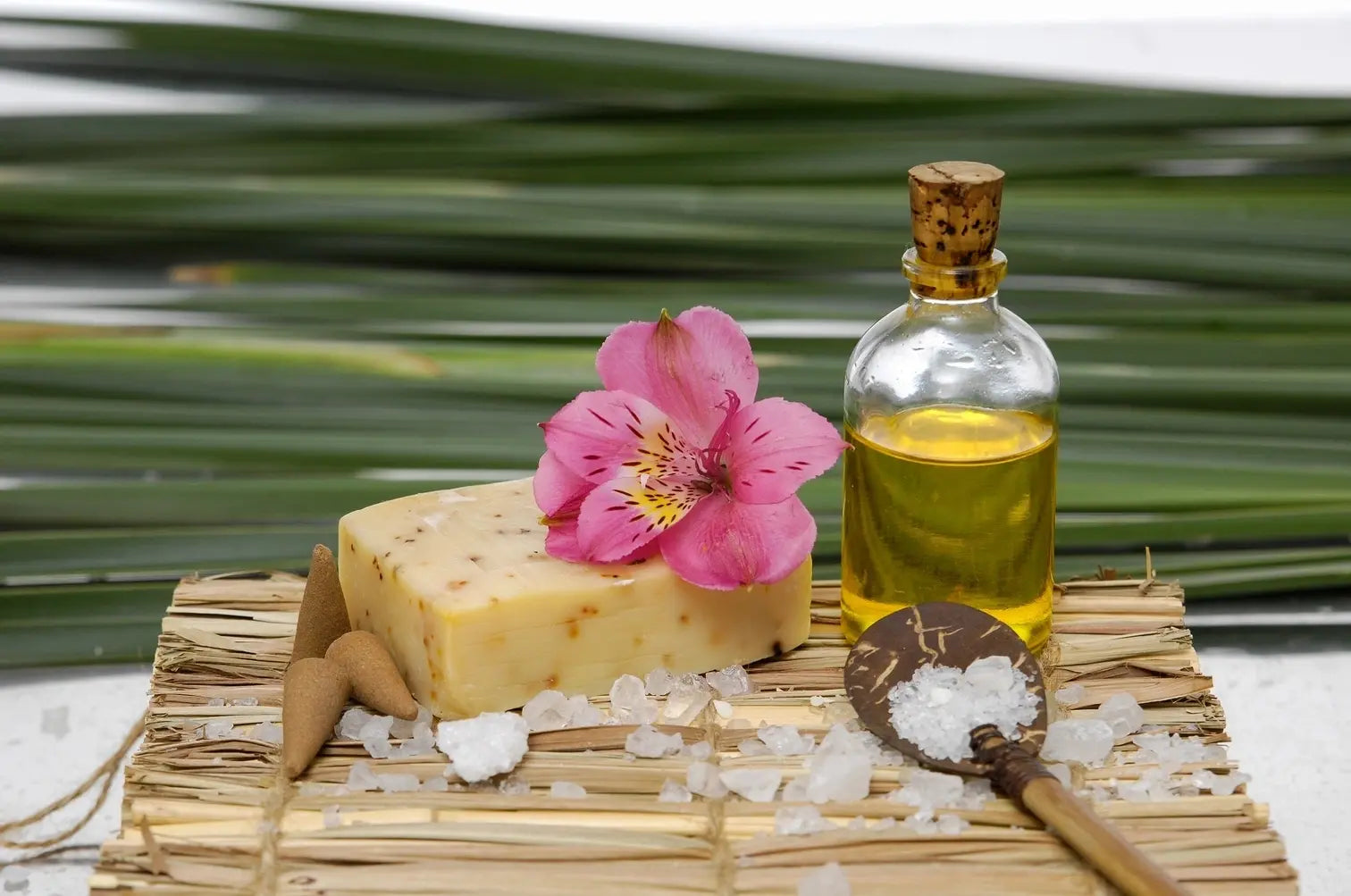What is allantoin?
What is allantoin?
Why is allantoin used in topical skin products?
Why is allantoin used in topical skin products?
What are the benefits of allantoin on the skin?
What are the benefits of allantoin on the skin?
What are the side effects of using allantoin?
What are the side effects of using allantoin?
Is allantoin meant to be used by all skin types?
Is allantoin meant to be used by all skin types?
Does allantoin support acne-prone skin in particular?
Does allantoin support acne-prone skin in particular?
Can allantoin be paired with other beneficial ingredients?
Can allantoin be paired with other beneficial ingredients?
How OneSkin uses allantoin
How OneSkin uses allantoin
- Allantoin can help with hydration, exfoliation, and skin healing.
- Allantoin has been shown to increase collagen production in the skin, promoting skin elasticity and wound healing for younger-looking skin.
- Allantoin is a non-toxic and safe ingredient that can be used with minimal side effects.
- Allantoin benefits all skin types but is especially useful for acne-prone, dry, and itchy skin due to its soothing properties.
- When combined with other moisturizers, allantoin can amplify their effects, ensuring well-hydrated skin.
- Allantoin is a key ingredients in OneSkin's OS-01 Topical Supplements, OS-01 FACE, OS-01 EYE, and OS-01 BODY
- Allantoin can help with hydration, exfoliation, and skin healing.
- Allantoin has been shown to increase collagen production in the skin, promoting skin elasticity and wound healing for younger-looking skin.
- Allantoin is a non-toxic and safe ingredient that can be used with minimal side effects.
- Allantoin benefits all skin types but is especially useful for acne-prone, dry, and itchy skin due to its soothing properties.
- When combined with other moisturizers, allantoin can amplify their effects, ensuring well-hydrated skin.
- Allantoin is a key ingredients in OneSkin's OS-01 Topical Supplements, OS-01 FACE, OS-01 EYE, and OS-01 BODY
- https://jpet.aspetjournals.org/content/81/1/1
- https://lotioncrafter.com/products/allantoin-usp-20lb-bulk
- https://www.byrdie.com/allantoin-for-skin-4769521
- https://www.ncbi.nlm.nih.gov/pmc/articles/PMC5774901/
- https://www.ombrelab.com/blogs/immunity/the-skin-microbiome-and-exfoliation
- https://www.verywellhealth.com/keratolytics-for-skin-scales-and-flakes-2788384
- https://www.scielo.br/j/acb/a/TgQXQQnLPHmtJ5dzq6vTsdD/?lang=en
- https://www.ncbi.nlm.nih.gov/pmc/articles/PMC5774901/
- https://www.stylecraze.com/articles/benefits-of-allantoin-for-skin/#ingredients-to-combine-and-avoid-with-allantoin
- https://www.sciencedirect.com/science/article/pii/S235264752030126X
- Based on data from clinical studies and/or lab studies conducted on human skin samples, 3D skin models, and skin cells in the OneSkin lab. Explore more at oneskin.co/claims
- https://onlinelibrary.wiley.com/doi/epdf/10.1111/jocd.16242
- https://jpet.aspetjournals.org/content/81/1/1
- https://lotioncrafter.com/products/allantoin-usp-20lb-bulk
- https://www.byrdie.com/allantoin-for-skin-4769521
- https://www.ncbi.nlm.nih.gov/pmc/articles/PMC5774901/
- https://www.ombrelab.com/blogs/immunity/the-skin-microbiome-and-exfoliation
- https://www.verywellhealth.com/keratolytics-for-skin-scales-and-flakes-2788384
- https://www.scielo.br/j/acb/a/TgQXQQnLPHmtJ5dzq6vTsdD/?lang=en
- https://www.ncbi.nlm.nih.gov/pmc/articles/PMC5774901/
- https://www.stylecraze.com/articles/benefits-of-allantoin-for-skin/#ingredients-to-combine-and-avoid-with-allantoin
- https://www.sciencedirect.com/science/article/pii/S235264752030126X
- Based on data from clinical studies and/or lab studies conducted on human skin samples, 3D skin models, and skin cells in the OneSkin lab. Explore more at oneskin.co/claims
- https://onlinelibrary.wiley.com/doi/epdf/10.1111/jocd.16242


